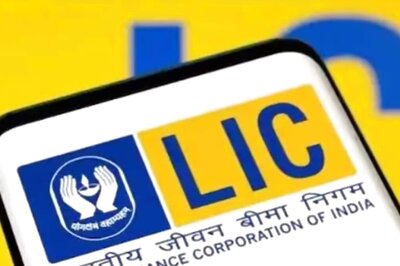
views
Interest rates play an important role in your personal finances. The Reserve Bank of India (RBI) raises or lowers key interest rates affecting your housing EMI, interest rates on your savings bank account. But, as rates begin to fall, what should you do?
Quickly repaid a chunk of your home loan because the interest rates went up, did you? Welcome to the world of fluctuating interest rates!
First, why do interest rates fluctuate?
In a democracy like India (in an election year that too!) governments are particularly sensitive to inflation. So, the RBI is pressurised to reduce inflation by increasing interest rates and sponging out excess liquidity.
When interest rates increase, borrowing money is less-attractive and this slows a rapidly growing economy. The reverse is applied to make the economy grow faster! Lowering the rate will make money flow more freely and hopefully stimulate economic growth.
Interest rates and your money
Interest rates play an important role in your personal finances. The Reserve Bank of India (RBI) raises or lowers key interest rates affecting your housing EMI, interest rates on your savings bank account. But, as rates begin to fall, what should you do?
One: accept it
Interest rates are a function of inflation, government spending, government policy, interest rates in other countries, demand and supply of money, etc. Even experts take a 2-3 month view, which is not useful when you are planning investments for the next few decades!
Two: If you already have loans, start cutting down, bargaining
Will you buy a bigger car because petrol prices have come down by Rs 5 a litre? Its the same logic when your interest rates come down. Here's what you must do:
- Step 1: If you have a lot of debt, tackle the highest interest rate loans first.
- Step 2: Cut down on loans
- Step 3: A rate change by RBI does not automatically reduce your interest rates.
Call your bank and ensure that your housing loan, credit cards, personal loans, etc. are all charged at a lower rate. A consumer is no longer the king unless he/she is well informed!
'We will get back to you', 'we are examining your requests' are all nice answers which actually do not reduce your debt! Try refinancing your loans, if you must. Act tough – a few 'reputed' organisations need more than a nudge to change!
Lock into high interest, long duration deposits
Low interest rates are great for borrowing money, but when it comes to trying to earn money on your savings, it isn’t to your advantage.
If your bank fixed deposit rates are dropping you should quickly tie-up for 18-36 months. Banks are as likely to reduce fixed deposits as they have done on home loans. You could perhaps look at some income funds with a 2-3 year view!
If you are not sure of locking in money, then at least choose a floater fund or liquid fund instead of a savings account. Income funds have an exit load! Also remember dividend distribution tax, short term capital gains tax and income tax while dealing with savings.
Read: Choose funds smartly, pay less tax
Disclaimer: While efforts have been made to ensure the accuracy of the information provided in the content, the web site or the author shall not be held responsible for any loss caused to any person whatsoever who accesses or uses or is supplied with the content (consisting of articles and information).




















Comments
0 comment